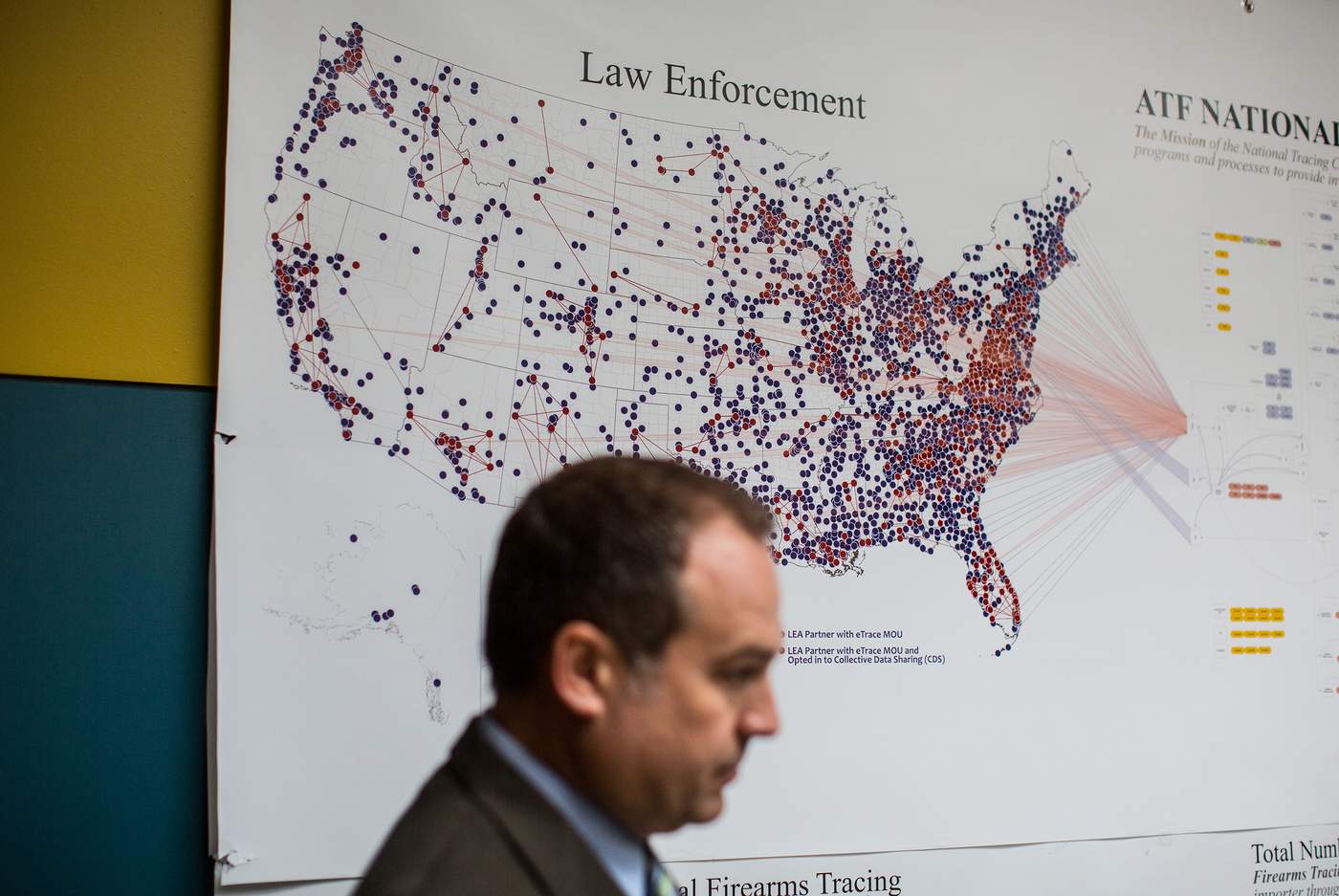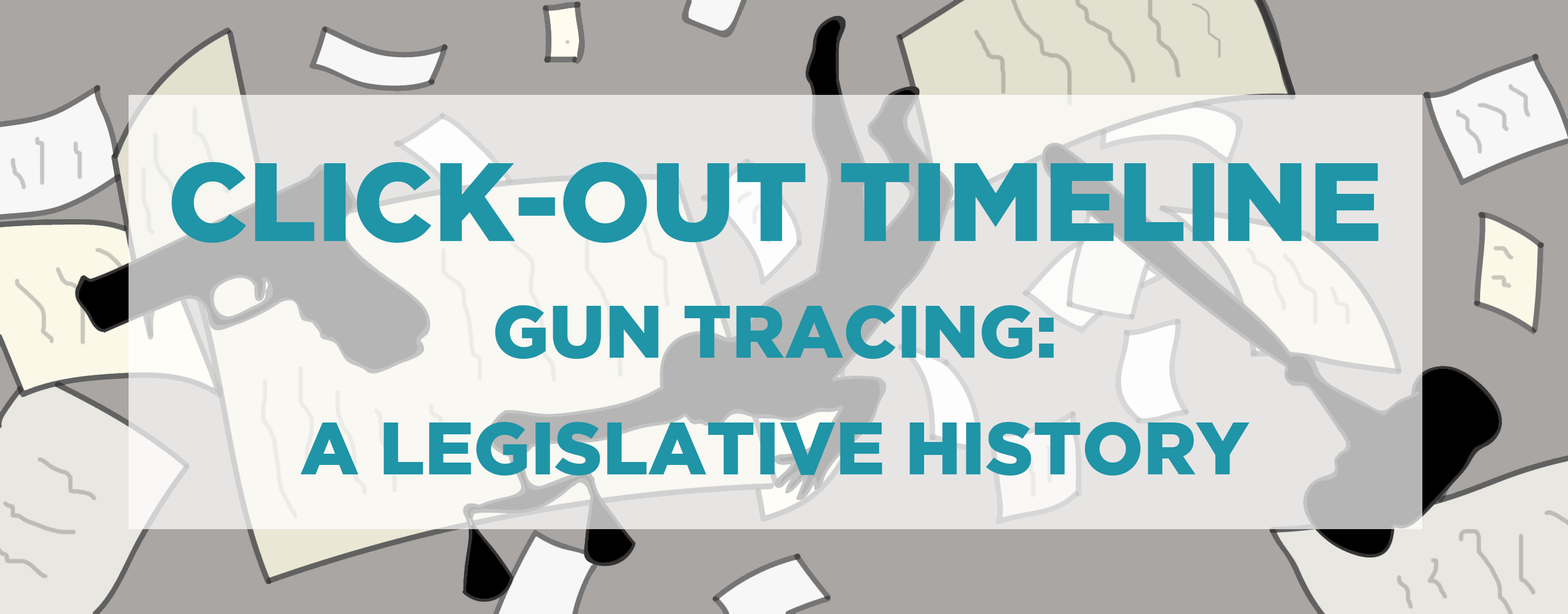Chicago police investigators make thousands of requests each year to workers at a nondescript brick building in Martinsburg, West Virginia — the Bureau of Alcohol, Tobacco, Firearms and Explosives’ gun tracing center.
By law, the ATF is the only agency in the country authorized to investigate who purchased a gun. But experts said that information isn’t making a significant dent in Chicago’s unsolved gun crimes. That’s because the ATF can only tell police who first purchased a gun — not the owner when it was used in a crime.
As part of WBEZ’s look at Chicago’s gun violence, reporter Natalie Moore went to the ATF’s National Gun Tracing Center to see the process firsthand. She also asked Chicago’s top cop how the tracing process could be more helpful to police as they work to figure out who picks up a gun and why.
How does the ATF trace a gun?
ATF officials said the agency receives about 400,000 trace requests per year, and Chicago police submitted about 5,800 requests in 2016.
The gun center does not get the actual guns, and tracers don’t search for fingerprints or do other forensic work. Instead, the tracers reach out to the manufacturer to try and find the retailer. From there, the gun tracers hope to get the name of the purchaser.
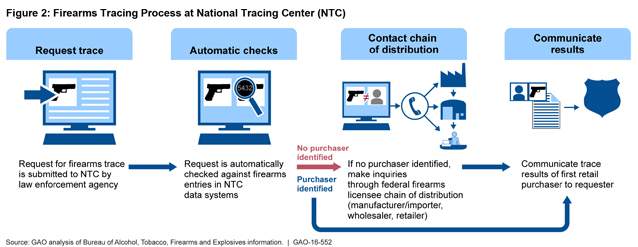
Courtesy of U.S. Government Accountability Office
ATF officials said about 65 to 70 percent of trace requests result in finding the last retail dealer or name of the purchaser. That information is kicked back to the requesting law enforcement agency.
Then it would be up to a detective to find the shooter. The last dealer or purchaser is not necessarily the crime suspect, and there’s no data to show how many trace requests lead to an arrest or a conviction.
How long does it take to trace a gun?
It can take up to a week for the ATF to complete a trace to find the original owner, in part because Congress has made it illegal to create a searchable database of gun owners. Much of the work they do involves sorting through stacks of papers.
“It’s not uncommon to get phone calls from police officers or investigators throughout the country that say, ‘Hey we recovered a gun, can you look it up for us and tell us who bought it?’ It’s not like that — at all,” said Neil Troppman, program manager at the ATF gun tracing center.
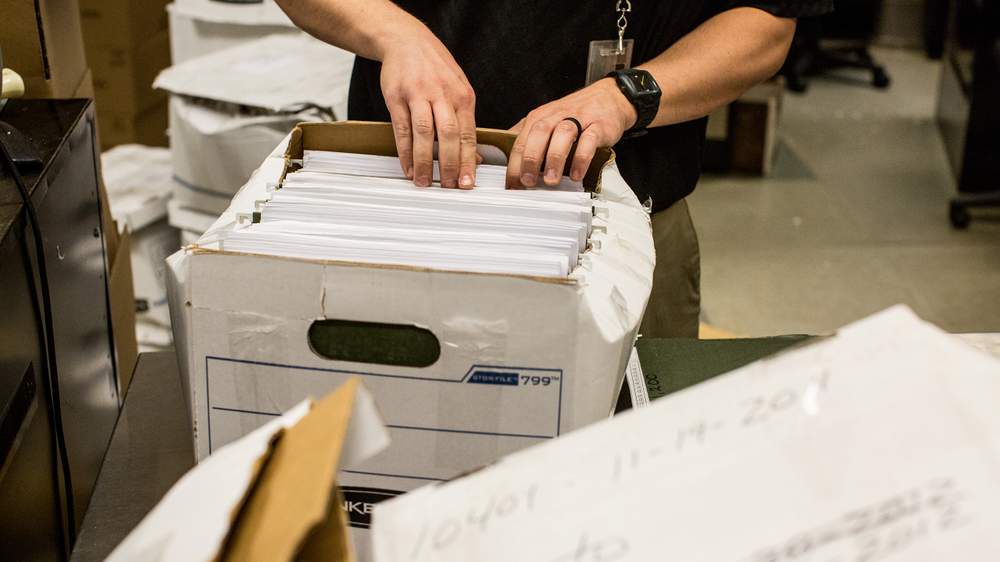
John Lorenz organizes gun receipts at the ATF National Tracing Center in Martinsburg, W. Va. (Raymond Thompson Jr. for WBEZ)
The gray-colored office space at the National Tracing Center is filled with mostly contract workers. The lack of computerization has lead to an indexing process that mirrors the Dewey Decimal System.
“When the records do come in, again, we can’t create an electronic database, so what we do is we index it,” Troppman said.
If a gunmaker or dealer goes out of business they are required to send all of their records to the ATF. Sometimes those records are delivered on a hard drive — or in a garbage bag. Sometimes they are moldy from a flood or scorched from a fire.
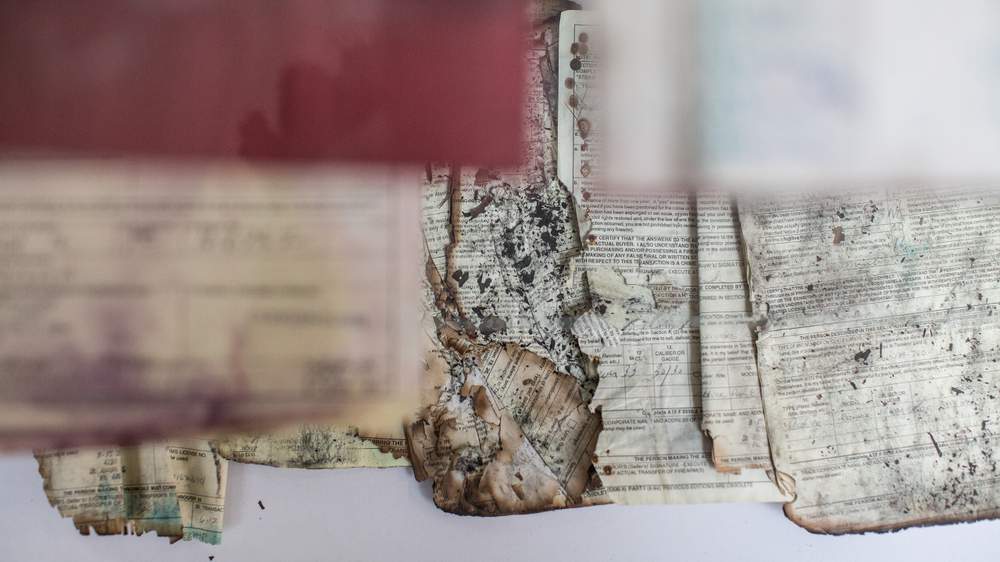
Gun receipts damaged in fires or natural disasters are displayed in a special case at the ATF National Tracing Center. (Raymond Thompson Jr. for WBEZ)
Troppman said the National Tracing Center receives about 2 million records from out-of-business gun dealers each month. They are sorted, scanned and checked. Then destroyed.
That’s because no more than 10,000 boxes of those out-of-business records can fit in the gun center wing where that tracing is done or the floor will start to buckle. Added storage space is outside in shipping containers.
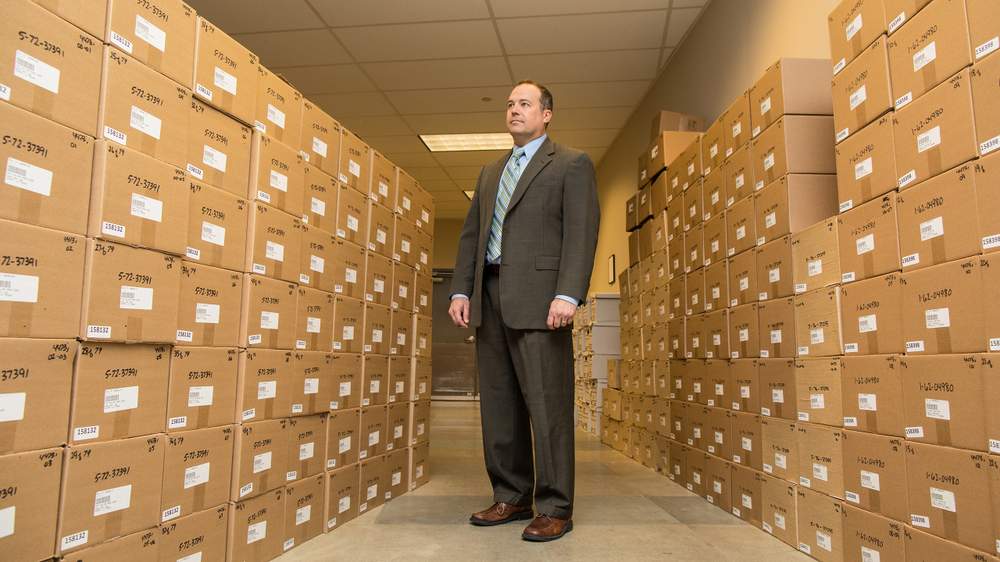
Neil Troppman, program manager for the ATF National Tracing Center, stands in front of boxes of gun reciepts. (Raymond Thompson Jr. for WBEZ)
SUNY-Cortland political scientist Robert Spitzer, author of The Politics of Gun Control, said this antiquated, almost-quaint paper sorting is not the ATF’s choice.
“The ATF has been subject to sustained political attacks in a way no other federal law enforcement agency has,” Spitzer said.
How does the ATF help Chicago police?
Last year, the Chicago Police Department recovered 6,664 illegal guns — an average of 18 guns per day, according to the University of Chicago Crime Lab, which studies gun violence in the city.
Chicago Police Superintendent Eddie Johnson said investigators request traces because detectives “want to know who was the person that first purchased [that] gun.”
Because there is no national registry that links guns to gun owners, the best the ATF can do is find the gun’s first retail purchaser. If that person has subsequently sold or transferred the gun, detectives could make phone calls and knock on doors until they track down the current owner — and, ultimately, the shooter.
This process is slow and cumbersome. Johnson said what the police department really needs is a centralized system that documents how guns change hands. He said a faster, more integrated tracing system could help officers interrupt the city’s gun trafficking and gun crimes.
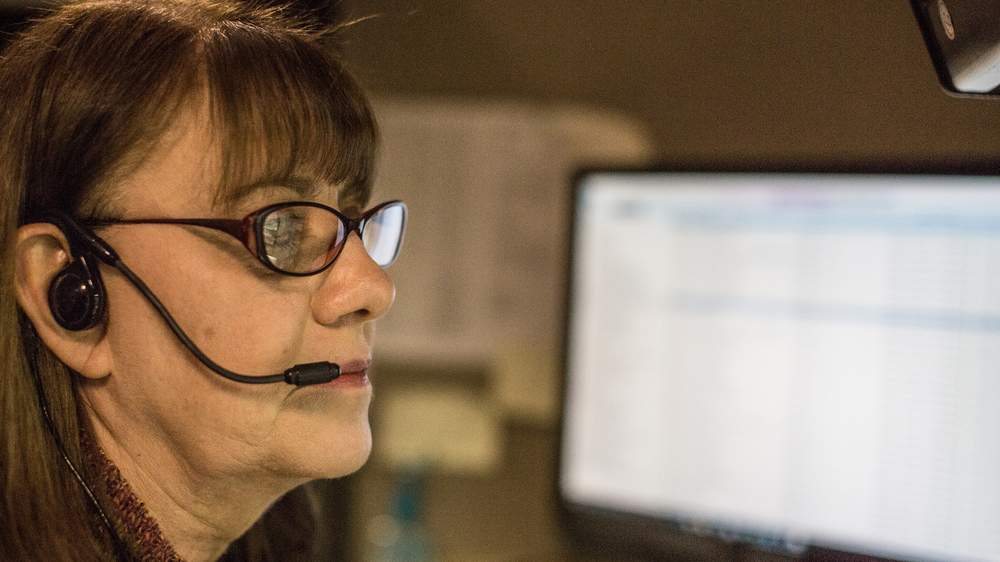
Janet Sisk works on gun traces in the call center at the ATF National Tracing Center. (Raymond Thompson Jr. for WBEZ)
This would likely require establishing some kind of searchable, computerized database. U.S. Sen. Dick Durbin (D-Ill.) said modernizing the ATF gun tracing process, or creating such a searchable database, would have to get through Congress — and that is unlikely.
Todd Vandermyde, a lobbyist for the NRA in Illinois, said there are enough mechanisms already in place that make a national registry unnecessary.“The government has no business knowing what I own as an individual,” Vandermyde said.
“Either I’m a law-abiding citizen or I’m not. If I’m not, I get caught up in the background checks.”
For now, Johnson has to rely on the ATF and shoe leather detective work.
Natalie Moore reports out of WBEZ's South Side studio. Follow her at @natalieymoore.
This story is part of WBEZ's Every Other Hour project. Find more stories here.
Criminal justice reporting and investigative journalism at WBEZ is supported in part by Doris and Howard Conant, The Joyce Foundation and the Robert R. McCormick Foundation.

